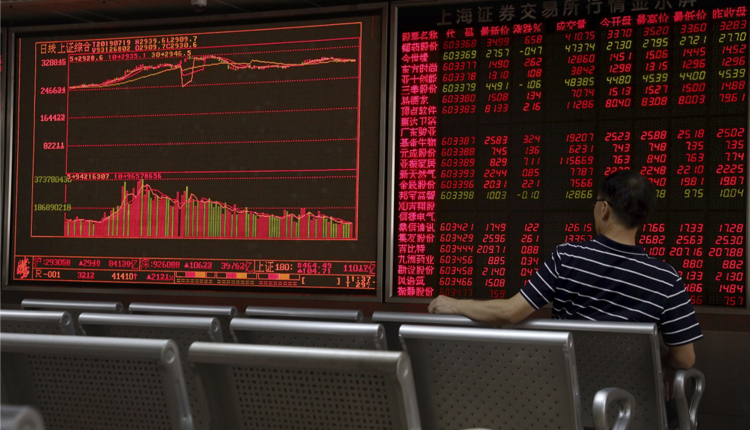Hong Kong markets closed nearly 4 percent higher on Wednesday afternoon trade following reports that a controversial extradition bill is set to be withdrawn.
By the market close, the Hang Seng index had jumped 3.9 percent to 26,523.23, paring some gains after surging as high as more than 4 percent earlier.
Hong Kong leader Carrie Lam will reportedly announce the withdrawal of a contentious extradition bill that has sparked months of mass protests and dampened investor sentiment. Its full withdrawal is one of five demands that protesters have been fighting for.
According to the South China Morning Post and other local media reports, Lam is due to make the announcement on Wednesday. CNBC sources confirmed that Lam will be calling for an urgent meeting with pro-Beijing supporters on Wednesday, but the agenda has not been confirmed.
Shares of companies that have come under the spotlight amid the turmoil in Hong Kong also skyrocketed following those reports.
Railway operator MTR, which has been hit by disruptions in its operations and damage to its infrastructure, jumped 6.4 percent. Embattled airliner Cathay Pacific also saw its shares surge 7.21 percent, with the firm’s CEO stepping down in mid-August amid heavy political pressure from Beijing after one of its pilots was found to have taken part in the ongoing protests in Hong Kong.
Mainland Chinese stocks also saw gains on the day, with the Shanghai composite rising 0.93 percent to about 2,957.41 while the the Shenzhen component added 0.69 percent to 9,700.32.
The Shenzhen composite also advanced 0.667 percent to approximately 1,636.40.
The Caixin/Markit Services Purchasing Managers’ Index came in at 52.1 in August, its highest since May. The 50-mark in PMI readings separates growth and contraction. Official data for August released over the weekend showed services sector activity picking up for the first time in five months in August.
In Japan, the Nikkei 225 gained 0.12 percent to close at 20,649.14 while the Topix index shed 0.26 percent to end its trading day at 1,506.81. The Kospi in South Korea closed 1.16 percent higher at 1,988.53.
The S&P/ASX 200 in Australia closed 0.31 percent lower at 6,553.00. Data released Wednesday showed Australia’s economy rising as expected during the second quarter.
Gross domestic product rose 0.5 percent quarter-on-quarter on a seasonally adjusted basis, and grew 1.4 percent year-on-year. Both figures came in in line with expectations from their respective Reuters polls.
Overall, the MSCI Asia ex-Japan index was more than 1.6 percent higher.
US factory activity shrinks
Overnight stateside, stocks on Wall Street fell on their first trading day of September. The Dow Jones Industrial Average closed 285.26 points lower at 26,118.02 while the S&P 500 declined 0.7 percent to end the day at 2,906.27. The Nasdaq Composite pulled back 1.1 percent to 7,874.16.
The moves downward came the Institute for Supply Management said U.S. manufacturing activity contracted last month for the first time since early 2016, fueling fears of a potential recession stateside.
“That’s another negative concern … for our economy,” Matt Maley, managing director and chief market strategist at Miller Tabak, told CNBC’s “Street Signs” on Wednesday.
“The consumer still seems to be holding up there real well, but as we … learned last year in the fourth quarter, the consumer can kind of change on a dime and with some recent consumer data coming in a little bit lower than expected, that does have some people a little bit … more worried than they were just a short time ago,” Maley said.
The yield on the benchmark ten-year Treasury note also dropped to a three-year low on Tuesday following the disappointing manufacturing activity data, falling to 1.441 percent, its lowest level since July 2016.
It was last at 1.4859 percent. Yields decline as bond prices rise.
Source: CNBC


